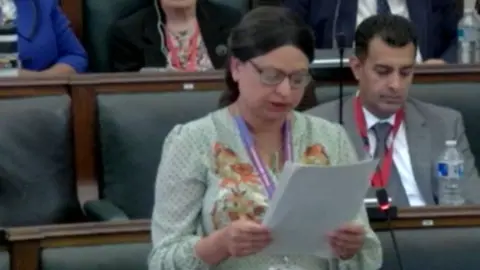Council first recognises Sikh and Jewish identity
 LDRS
LDRSBirmingham City Council is to become the first in England to recognise Sikh and Jewish identities when collecting data from residents.
A motion tabled by Birmingham Labour group to change the way the information is collected in the future was carried at a full council meeting.
Birmingham City Council questionnaires do not currently include the categories, despite the city having more than 30,000 Sikh residents and a 2,000-strong Jewish community.
The Labour group said the historic move would help the council understand its communities better and tackle discrimination.
It added that while Sikhs and Jews had been legally recognised as ethnic groups for more than 40 years, data was not routinely collected by public bodies.
The group argued Jewish and Sikh people were "rendered invisible" to policymakers by the omission.
 Birmingham City Council
Birmingham City CouncilThe motion was brought by councillor Jamie Tennant and seconded by councillor Rinkal Shergill.
Tennant said it showed Birmingham was "leading the country as a diverse and welcoming city" and he would lobby colleagues in other authorities to follow suit.
Describing herself as "a proud Sikh woman who lived in Birmingham the last 34 years", Shergill said the change marked an important step forward.
She pointed out the NHS did not classify Sikh and Jewish communities either, despite them being disproportionately affected by particular diseases and during the pandemic.
 Birmingham City Council
Birmingham City CouncilThe motion was backed by Edgbaston MP Preet Gill, who previously raised the issue in Parliament.
"It is absurd that most public bodies don't include these groups in the equalities data they collect," she said. "I am delighted Birmingham City Council is taking action to put this right."
It has also been supported by the Antisemitism Policy Trust, the Board of Deputies of British Jews, the Sikh Federation (UK) and local gurdwaras, Tennant told the chamber.
This news was gathered by the Local Democracy Reporting Service, which covers councils and other public service organisations.
Follow BBC Birmingham on BBC Sounds, Facebook, X and Instagram.
